The Darling River Run Part 3: Harsh and hot outback breeds people who are forever hospitable
Hardworking people like former Test cricketer farmer Peter Taylor, who endure 40°C plus heat on their farms, have revealed how they are forced to work well before 10am. “It’s just too hot,” he said. EXCLUSIVE SPECIAL INVESTIGATION.
Whatever differences exist between people can mostly be explained by their backgrounds and by their social and geographical environments.
As the great US humorist P.J. O’Rourke once put it: “People are all exactly alike. There’s no such thing as a race and barely such a thing as an ethnic group. If we were dogs, we’d be the same breed.
“George Bush and an Australian Aborigine have fewer differences than a Lhasa apso and a toy fox terrier. A Japanese raised in Riyadh would be an Arab.
“A Zulu raised in New Rochelle would be an orthodontist. People are all the same, though their circumstances differ terribly.”
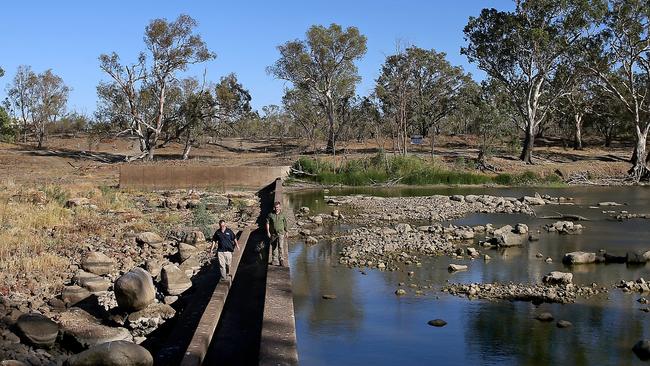
All very true. So, what happens when you put a bunch of people in the remarkable and sometimes-forbidding circumstances of inland NSW where summer temperatures can soar beyond 40°C, water is every so often completely absent from rivers and a day’s driving will typically involve meeting more kangaroos than cars?
Places with few easily-accessed resources tend to breed resourceful people, due to sheer necessity. Not a lot is wasted in towns where supplies of building material, household equipment and furniture are either limited or take some time to be delivered.
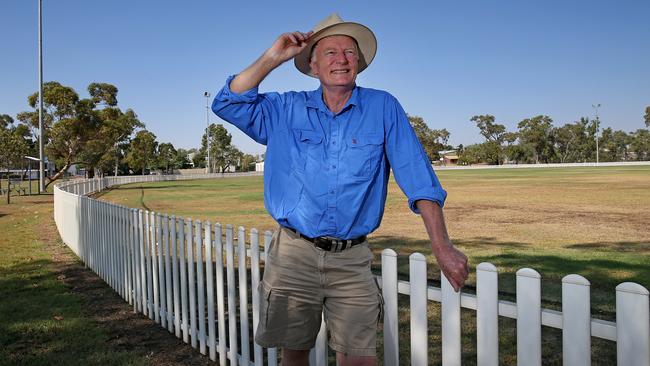
Wasting energy, too, is ill-advised when the temperatures peak. Peter Taylor had an economical style as a Test cricketer, and economy of movement is a necessity out at his Moree farm.
MORE NEWS:
Darling River Run a lonely 900km stretch of dirt
The Great River Run: Murray Darling crisis
Paddle steamer helped the Murray Darling’s early expansion
“You want to get as much done as you can before 10 o’clock,” Taylor says. “Otherwise it’s just too hot.”
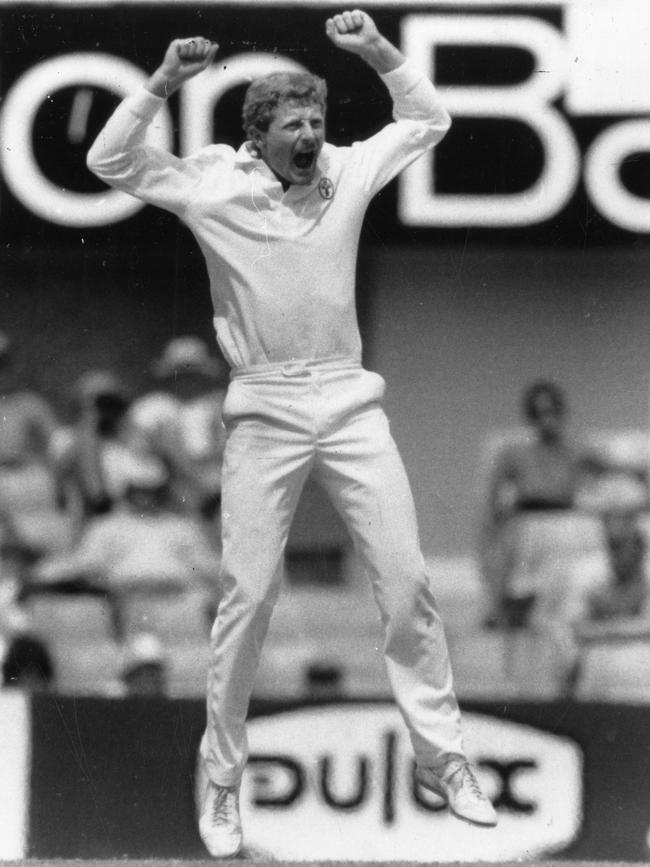
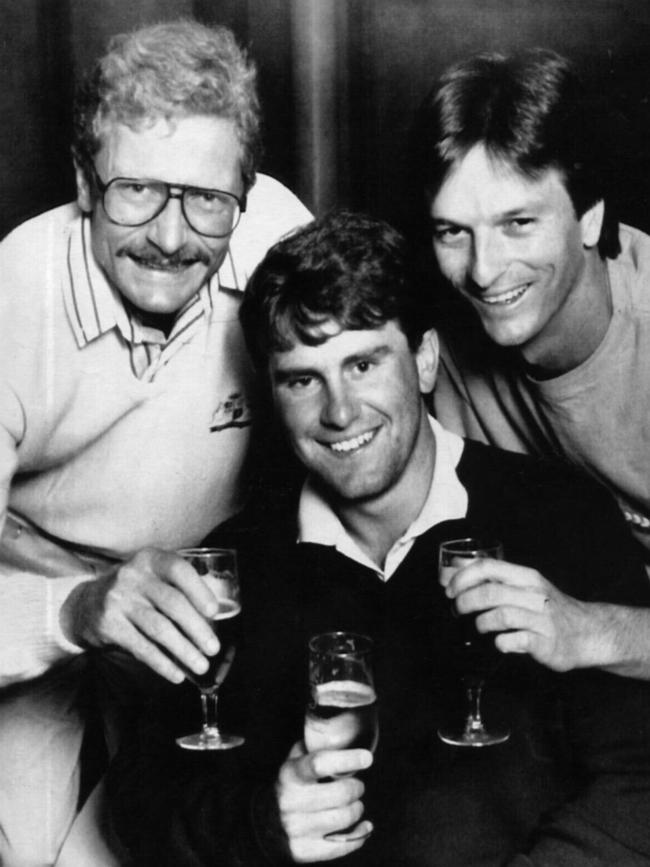
The Outback Australian driving wave — a lone index finger raised from the steering wheel to acknowledge an oncoming vehicle — might be an emblem of energy conservation.
A full-blown actual hand wave would be regarded as so flamboyant and excessive as to draw suspicion.
WELCOMING
That is not to say people aren’t friendly. Far from it.
Alana Hardy is walking lightly along Brewarrina’s Bathurst St as Warren Brown, Toby Zerna and I are enjoying coffee beneath a store awning. She pauses to say hello, and we get to chatting.
It turns out Alana works for Holz Trade Services and is involved in organising training and employment for young Aboriginal folk. “Come over to the office,” Alana says, pointing across the street. “Too hot out here.”
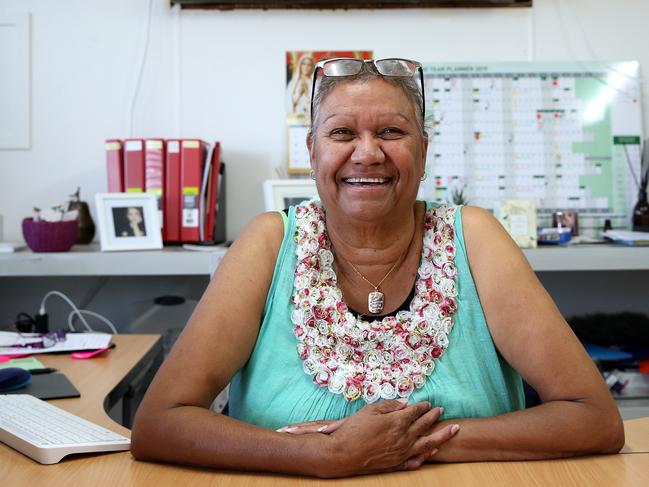
There used to be a fine old Art Deco cafe in Brewarrina, built in 1926 and never renovated. The interior looked like a silent-era movie set. I’d visited two decades ago. During our short walk, Alana remembers the terrible evening in 2014 when the De Luxe cafe burned to the ground.
“The whole town came out to see,” she says. “It was the worst night. Everybody loved the cafe.”
Alana has lived in Brewarrina since she was an infant — one of seven children — and has a tremendous affection for the town.
JOBS WOE
But Alana’s ties to the area don’t blind her to the town’s problems, which run deeper than the current drought.
“Employment,” she points out, “is not a big thing in town.”
It saddens her that some young people in Brewarrina “don’t want to do anything”, which stands in contrast to Alana’s own attitude.
“I’ve worked all my life,” she says. “I wanted to do things.”
That approach took her to Sydney during the 1970s, where she completed a secretarial course. Thereafter she has always been employable, across a wide range of jobs.
For a time Alana was engaged in administration for the Work for the Dole scheme, introduced by the Howard government in 1998.
“A lot of the people weren’t used to getting out and doing their hours for the money they’d get. They were just used to staying at home, because that’s how it was. The government’s got a lot to do with it, why they’re like that.”
Alana — “Aunty Al” to her co-workers — is a treasure. Besides seeing young people learning trades and making something of their lives, she is mostly looking forward to an end to the drought.
“If there’s a little bit of rain or anything now, I think I’m not going inside. I’m going to stand here and lap this up,” she says, joyful even at the prospect.
“Am I really feeling it, you know? Hopefully if we do get it, it’ll come down for days and days. Weeks.”
The rest of Brewarrina will no doubt join Alana, this time in celebration rather than watching a town icon in flames.
Originally published as The Darling River Run Part 3: Harsh and hot outback breeds people who are forever hospitable


